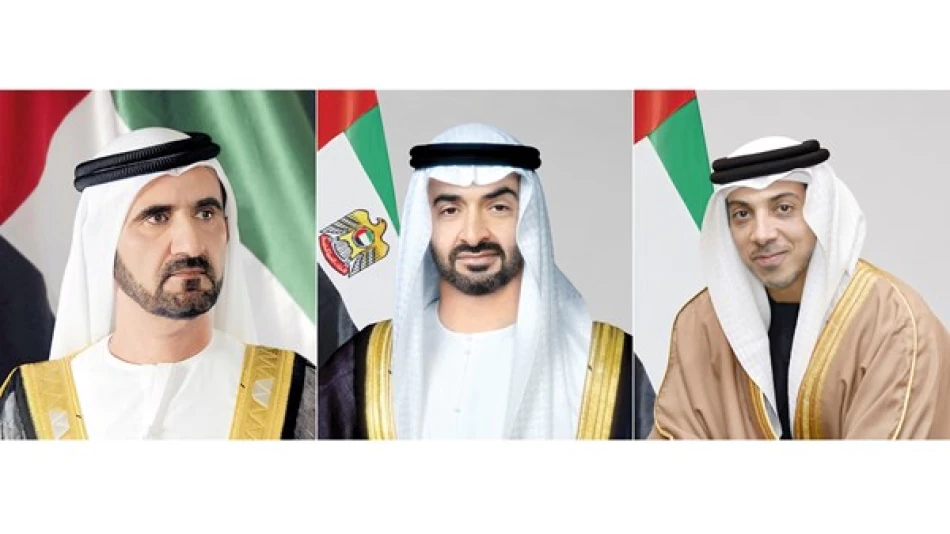
UAE Leadership Offers Condolences to Kuwait's Emir on the Passing of Sheikh Ali Abdullah
UAE Leadership Extends Condolences to Kuwait Following Death of Sheikh Ali Abdullah Al-Khalifa Al-Sabah
The United Arab Emirates' top leadership has sent formal condolences to Kuwait's Emir following the death of Sheikh Ali Abdullah Al-Khalifa Al-Sabah, underscoring the deep diplomatic ties between the two Gulf nations at a time when regional cooperation remains crucial for economic and security stability.
High-Level Diplomatic Outreach
UAE President Sheikh Mohammed bin Zayed Al Nahyan sent a condolence telegram to his counterpart, Kuwait's Emir Sheikh Mishal Al-Ahmad Al-Jaber Al-Sabah, expressing sincere sympathies over the passing of Sheikh Ali Abdullah Al-Khalifa Al-Sabah.
The diplomatic gesture was echoed by other senior UAE officials, including Vice President and Prime Minister Sheikh Mohammed bin Rashid Al Maktoum, who also serves as Dubai's ruler, and Deputy Prime Minister Sheikh Mansour bin Zayed Al Nahyan, who heads the Presidential Court.
Strengthening Gulf Unity Through Tradition
This coordinated response from the UAE's highest offices reflects the formalized diplomatic protocols that have become hallmarks of Gulf Cooperation Council relations. Such gestures carry particular weight in a region where personal relationships between ruling families often translate into broader policy alignment.
Regional Context and Significance
The timing of these condolences comes as Gulf states continue to navigate complex regional dynamics, from energy transition policies to geopolitical tensions with Iran. Kuwait and the UAE have maintained consistently strong bilateral relations, with trade volume between the countries exceeding $8 billion annually.
Both nations have also coordinated closely on OPEC+ oil production policies and have similar approaches to economic diversification, making diplomatic continuity particularly valuable for ongoing regional initiatives.
Implications for Gulf Cooperation
The immediate and high-level nature of the UAE's response signals the importance both countries place on maintaining seamless diplomatic relations. For investors and businesses operating across Gulf markets, such stability in leadership communications often translates to predictable policy environments and continued cross-border cooperation.
The formal exchange also demonstrates how traditional diplomatic customs continue to play a vital role in modern Gulf statecraft, where personal relationships between leaders frequently influence broader economic and political partnerships that affect everything from infrastructure projects to financial market integration.
Most Viewed News

 Layla Al Mansoori
Layla Al Mansoori






